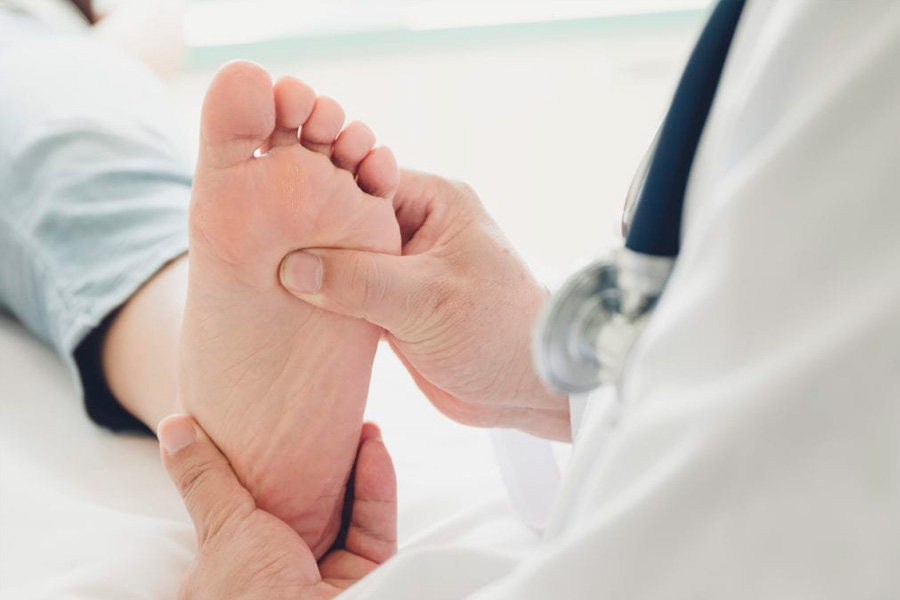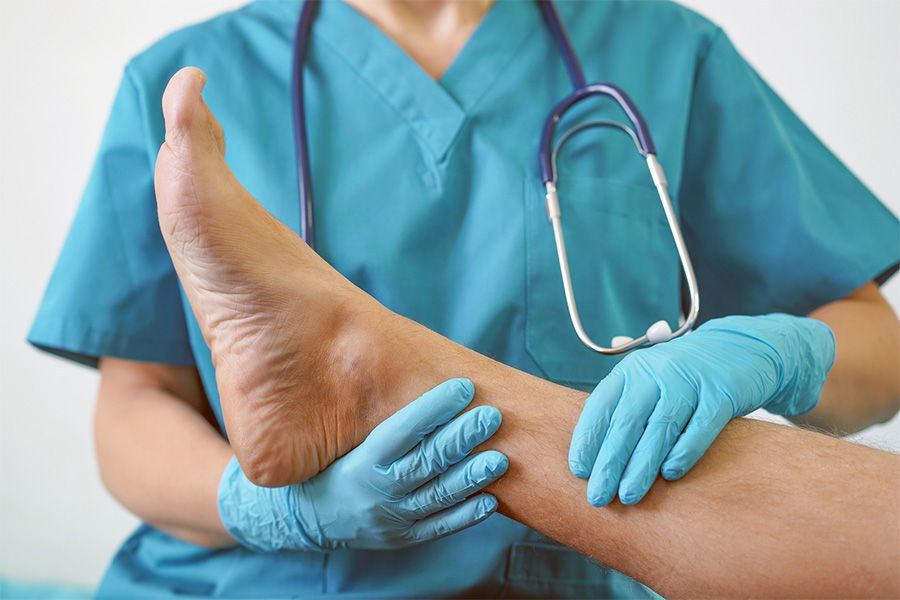The pitter-patter of little feet is sound parents love to hear. However, if your child has a foot deformity, you may worry every time your child takes a step. On the other hand, you may worry as soon as your child is born if you notice something is different.
Several issues can affect your child’s foot, so you should understand the signs. Working with a foot surgeon early can prevent complications in the future.
Club Foot
Club foot is a foot abnormality that your son or daughter may have at birth. With this condition, the foot twists from its usual position or shape. It occurs when the tendons that join the muscles and bones are shorter than normal. In around 50 percent of cases, a child has two club feet.
This is relatively common, but doesn’t usually occur along with other conditions. Therefore, your child may be healthy in all other aspects.
Tarsal Coalition
Tarsal coalition affects the tarsal bones – the ones located at the heel and near the back of the foot. If the abnormality is severe, it can cause a flat foot.
The abnormality causes pain. Sometimes, it interferes with your child’s ability to move normally.
Frequently, your child is born with tarsal coalition. However, your child might not have symptoms from it until he or she is an adolescent.
Accessory Navicular
Accessory navicular is a congenital issue that happens when your child has an additional piece of cartilage or extra bone on the inner position of the foot. Specifically, it’s located above the arch. It’s not a common problem.
Accessory navicular causes no symptoms, so you may not know your child has it when or she is younger. Symptoms may become prevalent in adolescence. At this time, your child’s bones mature and cartilage forms. The bone or cartilage can protrude and appear red or swollen during this time. Your child may also have pain in the arch or mid-foot.
If your kid has an ankle or foot sprain, overuses his or her feet, or wears shoes that rub against the bone, symptoms may develop as well.
In some cases, your child may also have flat feet.
Juvenile Bunion
A juvenile bunion, also known as a juvenile hallux valgus, describes a bump that forms on the inside of the foot.
Your child can develop it from poorly fitted shoes. In some cases, heredity plays a role. Most often, juvenile bunions happen in children who have loose joints or ligaments. It tends to occur in girls more often than boys.
Cavus Foot
Cavus foot means your child has an abnormally high arch. It could cause your child to have a foot that turns inward. Usually, your kid will have it in both feet. Most of the time, cavus foot worsens over time.
If your child has this condition, he or she may feel pain. Calluses can occur due to your child not bearing weight evenly. This condition may also lead to stress fractures and ankle sprains.
Polysyndactyly, Syndactyly, and Polydactyly
Your kid could be born with webbed teeth, also known as syndactyly which means he or she has extra skin in between the toes. Sometimes, extra bone, blood vessels, or nerves are present in between the toes as well.
A child may be born with an extra toe, known as being polydactyly. The extra digit may be a fully formed toe or a small nub.
In some cases, your baby could be born with both webbed feet and an extra toe, which is known as being polysyndactyly.
These don’t pose a problem for your child, but you may want to address the problem for aesthetic purposes.
Treatment from a Foot Surgery Specialist in Plantation, FL
The treatment of a pediatric foot deformity depends on your child’s condition. For instance, if your child is polydactyly, it usually doesn’t cause problems, but you may wish to have the extra toe surgically removed for cosmetic reasons.
Sometimes, the treatment may be therapy to help your child function. A foot surgeon may size your child for a brace. For instance, certain cases of clubfoot may be treated early with casting in mild cases. However, certain issues like severe cases of clubfeet may require foot surgery. Tarsal coalition may also require surgery.
Fortunately, our practitioners can provide minimally invasive foot surgery in many cases. In most cases, we try to avoid surgery if at all possible.
Schedule an appointment with Cincinnati Foot & Ankle Care, serving Cincinnati and various other parts of Ohio, today for treatment of your child’s foot deformity. You may reach us by calling one of our locations or by requesting an appointment online.





